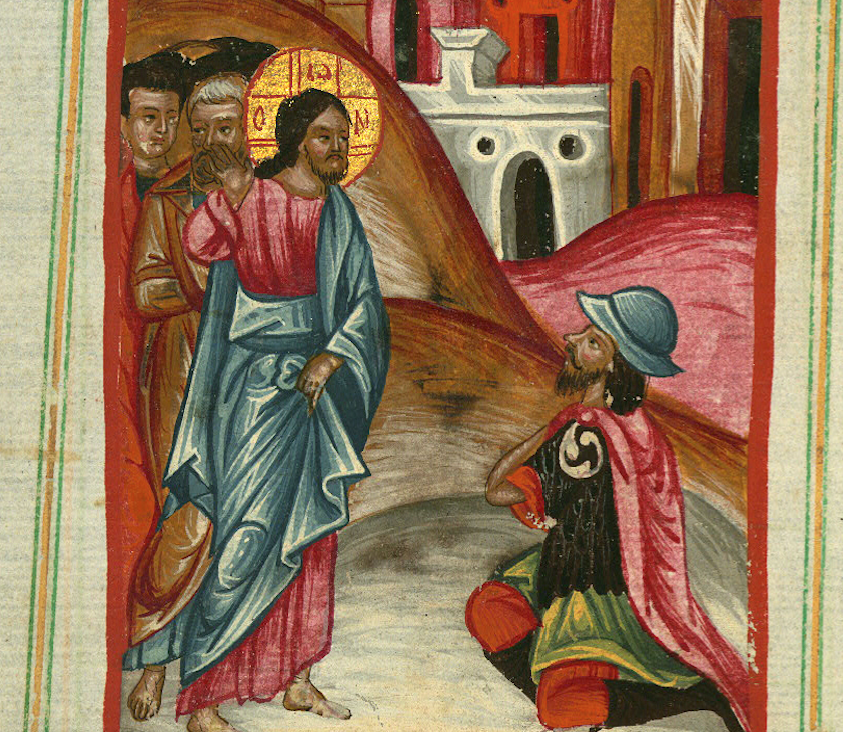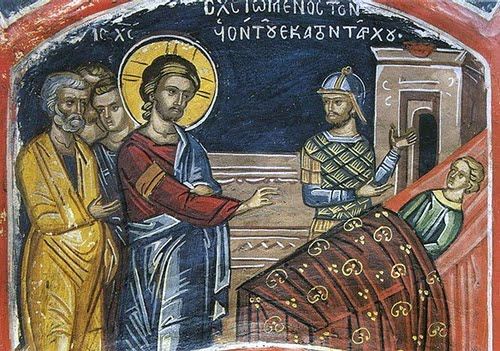Message of Abbot Paul - Saturday 1st July 2023
Abbot Paul • June 30, 2023


I wonder if the Post Office or perhaps just the postmen are on strike. You probably know better than I do. We appear to have received post only twice this past week and very important letters sent today, but put in the post room yesterday, still had not been collected by 7.30pm last night. I must confess to getting really upset when a letter or an important document I have promised someone for the next day hasn’t even been collected, let alone started its journey. Although I know I’m not to blame for this, nevertheless my natural sense of duty and efficiency causes sleepless nights and nasty bouts of stress. I turn to the Lord, asking that he help me calm down, rather than intervene in the workings of the Post Office.
The second miracle in the series of ten that we read in the section of Matthew following on from the Sermon on the Mount, is the healing of the centurion’s servant, one of the best known and loved of Jesus’ miracles, (Mt 8: 5-17). It also sees us back in Capernaum with Jesus and his disciples. This miracle is followed by the healing of Peter’s mother-in-law. It’s good to know that the Prince of the Apostles had a mother-in-law. I wonder if he got on with her! But let’s go back to the healing of the centurion’s servant.
“When Jesus went into Capernaum a centurion came up and pleaded with him. ‘Sir,’ he said ‘my servant is lying at home paralysed, and in great pain.’ ‘I will come myself and cure him’ said Jesus. The centurion replied, ‘Sir, I am not worthy to have you under my roof; just give the word and my servant will be cured. For I am under authority myself, and have soldiers under me; and I say to one man: Go, and he goes; to another: Come here, and he comes; to my servant: Do this, and he does it.’ When Jesus heard this he was astonished and said to those following him, ‘I tell you solemnly, nowhere in Israel have I found faith like this. And I tell you that many will come from east and west to take their places with Abraham and Isaac and Jacob at the feast in the kingdom of heaven; but the subjects of the kingdom will be turned out into the dark, where there will be weeping and grinding of teeth.’ And to the centurion Jesus said, ‘Go back, then; you have believed, so let this be done for you.’ And the servant was cured at that moment.” As I don’t have much time at my disposal, I’ll just mention some points of interest. Although it is the servant who is ill and is healed, the miracle really concerns the faith of the centurion, who was not a Jew but probably a God-fearing Roman. A centurion was the commander of a hundred men and the Romans were considered to be oppressors. In the Sermon on the Mount, Jesus had taught his disciples to love their enemies and to pray for those who hated them. The servant was probably a Jew, but the man of faith was the centurion, and not only faith, but faith with humility. His are the words we repeat at Mass each time we prepare to receive Holy Communion. “Lord, I am not worthy that you should come under my roof, but only say the word and my soul shall be healed.”









